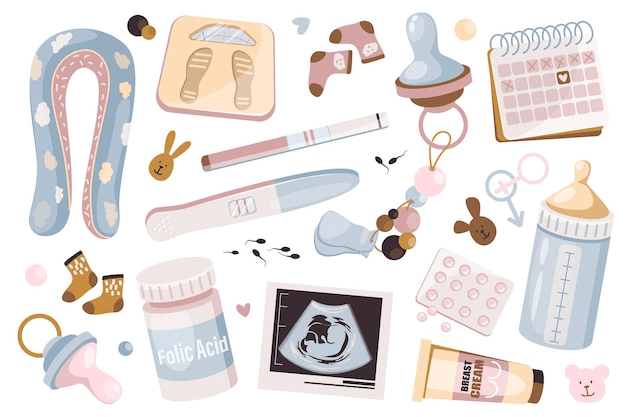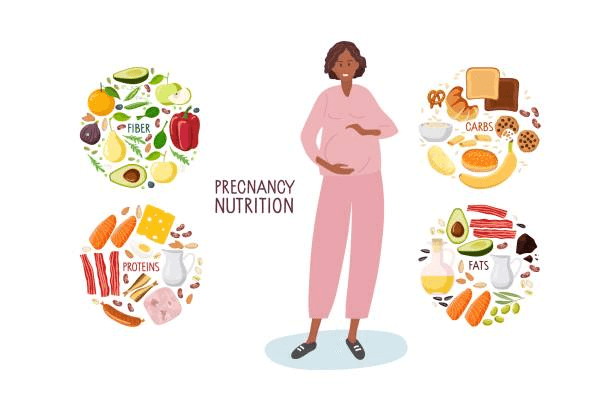Pregnancy Hormones: Understanding Their Impact on Your Body

As you go through pregnancy, knowing about pregnancy hormones is key. Johns Hopkins Medicine says many hormone levels change during pregnancy. Learning about these hormones can help you deal with pregnancy’s challenges.
Your body changes a lot during pregnancy, and hormones are at the heart of these changes. For example, estrogen levels go up, reaching their highest in the third trimester. Progesterone levels also rise, often causing mood swings in the first trimester. Knowing about these changes can help you manage your symptoms and keep your pregnancy healthy.
Key Takeaways
- Pregnancy hormones have a big impact on your body and are key for the baby’s growth and getting ready for birth.
- Estrogen levels go up steadily, peaking in the third trimester, causing changes like darker nipples and bigger breasts.
- Progesterone levels rise in the first trimester, leading to mood swings, and can also cause constipation and gas.
- Understanding pregnancy hormones and their effects can help you manage symptoms and ensure a healthy pregnancy.
- Hormones like oxytocin and prolactin are important for labor and breastfeeding, affecting both mother and baby.
- Exercising for 30 minutes a day can help stabilize mood and release endorphins, easing symptoms caused by pregnancy hormones.
- Eating a high-fiber diet and using stool-softeners can help with constipation caused by higher progesterone levels.
The Essential Guide to Pregnancy Hormones
As you journey through pregnancy, knowing about hormones is key. Hormonal shifts are a natural part of it. Being informed helps you prepare for what’s ahead.
Your body changes a lot during pregnancy, and hormones are at the heart of it. Hormones affect everything from mood swings to physical changes. Knowing about hormones can help you understand and manage these changes.
What Are Pregnancy Hormones?
Pregnancy hormones are chemical messengers. They help your body adjust to the growing fetus. They cause physical and emotional changes, getting you ready for childbirth and motherhood.
Why Hormones Change During Pregnancy
Hormones change to support the fetus’s growth and prepare your body for childbirth. These changes can be huge, with some hormone levels increasing by 1000 times.
The Timeline of Hormonal Changes
The hormonal changes in pregnancy follow a complex timeline. For example, estrogen levels jump in the first trimester. Progesterone stays high throughout. Knowing this timeline helps you prepare for physical and emotional changes at each stage.
Understanding Pregnancy Hormones and Their Effect on Your Body
As you go through pregnancy, it’s key to know about the changes in body during pregnancy caused by hormonal changes in pregnancy. These changes can affect how you feel and think, so it’s important to understand what’s happening.
Physical changes include your kidneys working harder and your thyroid gland getting bigger. Your parathyroid hormone levels also drop. These shifts might feel overwhelming, but knowing about them can help you handle your symptoms better.
Emotional changes are also common, like mood swings, anxiety, and feeling tired. It’s vital to talk to loved ones, healthcare providers, or support groups to deal with these feelings. By grasping the hormonal changes in pregnancy and their body effects, you can prepare for the ups and downs of pregnancy.
Every pregnancy is different, so staying informed and connected with your healthcare provider is key. By knowing about the changes in body during pregnancy and hormonal changes in pregnancy, you can support your health and happiness during this time.
Human Chorionic Gonadotropin (hCG): The Pregnancy Marker
Understanding human chorionic gonadotropin (hCG) is key during pregnancy. It helps track your health and your baby’s growth. Pregnancy hormones, like hCG, have a big impact on your body.
How hCG Levels Change Throughout Pregnancy
hCG levels tell a lot about your pregnancy and your baby’s health. Johns Hopkins Medicine says hCG is vital for the fetus’s growth. It can double every three days in the first eight to 10 weeks.
Common Symptoms Associated with hCG
hCG is linked to morning sickness and tiredness. But, pregnancy hormones can cause many symptoms. By watching your hCG levels, you can handle pregnancy’s challenges better. This ensures a healthy pregnancy for you and your baby.
Progesterone: The Pregnancy Protector
Understanding hormone levels in pregnancy is key, with progesterone being a major player. It prepares your body for the growing fetus. Progesterone makes the uterine lining thick, perfect for the fertilized egg to implant.
Progesterone levels soar in pregnancy, leading to many physical and emotional changes. It’s vital for a healthy pregnancy. Progesterone does several important things:
- Prepares the uterus for implantation
- Regulates hormone levels in pregnancy for fetal growth
- Supports the development of the placenta
Knowing how progesterone affects your body helps manage symptoms and prepare for pregnancy. Every woman’s body reacts differently to hormones. So, it’s important to talk to your healthcare provider if you’re worried about your progesterone levels or pregnancy health.
By understanding progesterone’s role in pregnancy, you can support your reproductive health. This ensures a healthy pregnancy. Always talk to your healthcare provider if you have questions or concerns about your hormone levels in pregnancy or overall well-being.
Estrogen’s Role in Your Pregnancy Journey
Understanding estrogen’s role in pregnancy is key. Estrogen is a hormone that helps develop female traits and prepares breasts for milk. Its levels soar in pregnancy, leading to many physical and emotional changes.
Physical Changes Caused by Estrogen
Estrogen impacts your health in many ways during pregnancy. It helps control cholesterol levels and blood sugar levels. It also affects bone and muscle mass, which is important for avoiding osteoporosis.
Emotional Effects of Estrogen
Estrogen also affects your mood. It can cause mood swings and emotional ups and downs. Managing stress and staying healthy is vital. It also influences brain function, affecting focus and concentration.

Managing Estrogen-Related Symptoms
To handle estrogen-related symptoms, knowing the effects of hormones in pregnancy is essential. Recognizing these changes helps you stay healthy and prepare for what’s ahead. Remember, pregnancy hormones are vital, and understanding them boosts your confidence during this time.
Relaxin and Physical Changes in Your Body
During pregnancy, you might notice big changes in body during pregnancy. One key hormone is relaxin. It relaxes your joints and ligaments, getting your body ready for childbirth. Relaxin levels go up a lot during pregnancy, leading to many physical changes.
Relaxin can make your joints and ligaments loose. This might cause pelvic girdle pain in about 45% of women. It can also make your feet grow up to a full shoe size and your arches flatten. Knowing these effects helps you manage your symptoms and get ready for pregnancy.
Relaxin levels reach their peak at the end of the first trimester. It can take months to go back to normal after giving birth. For breastfeeding moms, relaxin levels might stay high. Understanding relaxin’s role and its effects helps you manage your symptoms and have a healthy pregnancy.
The Impact of Hormones on Your Emotions
As you go through pregnancy, you might feel a lot of emotional changes. These changes come from the hormones in your body. They can make you feel anxious, irritable, and have mood swings. It’s important to know that these feelings are normal and can be managed.
Studies show that more than half of pregnant women feel mood swings and emotional sensitivity. This is because of changes in progesterone and estrogen. Also, about 80% of women feel emotional ups and downs during pregnancy. They might feel very happy but also anxious and irritable. To deal with these feelings, finding what works for you is key. This could be exercise, meditation, or talking to friends and family.
Mood Swings and Hormonal Fluctuations
Hormonal changes in pregnancy can cause mood swings. These can be hard to handle. But knowing about the physical and emotional changes in pregnancy can help you prepare. Common symptoms include feeling anxious, irritable, and very sensitive emotionally.
Coping Strategies for Emotional Changes
To handle emotional changes during pregnancy, try these strategies:
- Practice relaxation techniques, such as deep breathing and meditation
- Engage in regular exercise, such as walking or prenatal yoga
- Connect with friends and family for social support
- Get enough sleep and maintain a healthy diet
Understanding how hormones affect your emotions and finding ways to cope can help you through pregnancy. Remember, taking care of your emotional health is very important. Don’t hesitate to ask for help when you need it.
Managing Hormone-Related Symptoms Naturally
Understanding how pregnancy hormones affect your body is key. Symptoms like fatigue, mood swings, and breast tenderness can be tough. To feel better, try getting enough sleep, drinking water, and exercising regularly.
Eating well is also important. Include fruits, vegetables, and whole grains in your diet. Safe self-care like meditation, yoga, and massage can also help. Find what works for you and your body.
Lifestyle Adjustments
Here are some lifestyle changes you can make:
- Get at least 8 hours of sleep to balance your hormones.
- Drink lots of water to stay hydrated and support your baby’s growth.
- Do regular exercise, like walking or prenatal yoga, to reduce stress and improve your mood.
Diet and Exercise Recommendations
Eating a balanced diet is vital for your health and your baby’s. Include:
- Fruits like berries and citrus fruits.
- Vegetables like leafy greens and bell peppers.
- Whole grains like brown rice and quinoa.
Exercise is also important. It can lower the risk of pregnancy complications. Always check with your healthcare provider before starting any new exercise.
When to Seek Medical Support for Hormonal Issues
Understanding when to seek medical help for hormonal issues during pregnancy is key. Pregnancy hormones can lead to various symptoms, from mild to severe. Some symptoms can be managed naturally, but others need medical attention.
The effects of hormones in pregnancy can be significant. It’s important to know when to seek help. If you have severe mood swings, anxiety, or emotional changes, contact your healthcare provider. Also, if you notice vaginal bleeding, severe headaches, or other concerning symptoms, get medical help right away.
Some common signs that may indicate the need for medical support include:
- Severe mood swings or anxiety
- Vaginal bleeding or spotting
- Severe headaches or migraines
- Extreme fatigue or weakness
It’s always safer to be cautious about your health and your baby’s. If you’re unsure about any symptoms or concerns, don’t hesitate to reach out to your healthcare provider. They can offer guidance and support.
Conclusion: Embracing Your Body’s Hormonal Journey
As your pregnancy goes on, it’s key to accept the hormonal shifts happening in your body. These changes might feel tough, but knowing how they affect you can make things easier. Every pregnancy is different, and by staying informed and taking care of yourself, you can do well during this time.
Understanding the role of pregnancy hormones in your health is important. It helps you deal with any issues you might face. From morning sickness to mood swings, there are ways to handle these. Always talk to your healthcare provider and ask for help when you need it.
Your pregnancy is a special journey that’s worth celebrating. Accept the physical and emotional changes and trust your body. With the right attitude and self-care, you can handle the hormonal ups and downs of pregnancy with confidence and grace.





